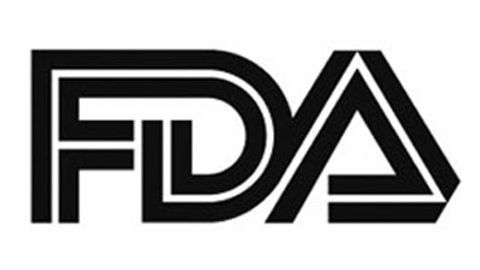FDA Approves Frontline Pembrolizumab and Lenvatinib Combination for Advanced RCC
The FDA has granted approval to the combination of pembrolizumab (Keytruda) and lenvatinib (Lenvima) for the first-line treatment of adult patients with advanced renal cell carcinoma (RCC).

The FDA has granted approval to the combination of pembrolizumab (Keytruda) and lenvatinib (Lenvima) for the first-line treatment of adult patients with advanced renal cell carcinoma (RCC), according to a press release issued by Merck and Eisai.
The approval is supported by findings from the phase 3 CLEAR trial, in which the pembrolizumab/lenvatinib reduced the risk of disease progression or death by 61% (HR, 0.39; 95% CI, 0.32-0.49]; P <.0001) compared with sunitinib (Sutent). The median progression-free survival (PFS) observed with the combination was 23.9 months versus 9.2 months for sunitinib.
During a prior interview with Targeted OncologyTM about the CLEAR study results, Robert Motzer, MD, Jack and Dorothy Byrne Chair in Clinical Oncology, Kidney Cancer Section Head, Genitourinary Oncology Service, Memorial Sloan Kettering Cancer Center, stated "said I think the standout from the trial was the efficacy gain for lenvatinib plus pembrolizumab. I think that the results of that were extremely impressive. And I think that's a good choice for first-line treatment for RCC."
Motzer added, in a press release, “This is a significant milestone for newly diagnosed patients with advanced renal cell carcinoma and introduces a promising combination option in the first-line setting.”
The combination of pembrolizumab and lenvatinib also reduced the risk of death by 34% (HR, 0.66; 95% CI: 0.49-0.88]; P =0.0049) in the study compared with sunitinib. confirmed objective responses were observed in 71% (95% CI: 66-76) of the combination arm versus 36% (95% CI: 31-41)of the sunitinib arm.
The confirmed ORR for the experimental combination was 71% compared to 36% in the control group. In the experimental group, 16% of patients experienced a complete response (CR) and 55% experienced a partial response (PR). In the control group, 4% experienced a CR and 32% experienced a PR.
Fatal AEs occurred in 4.3% of patients who received the combination. Serious AEs occurred in 51% of patents. Serious AEs included hemorrhagic events (5%), diarrhea (4%), hypertension (3%), myocardial infarction (3%), pneumonitis (3%), vomiting (3%), acute kidney injury (2%), adrenal insuciency (2%), dyspnea (2%), and pneumonia (2%). Thirty-seven percent of patients in the pembrolizumab/lenvatinib arm discontinued treatment. Dose interruption occurred in 78% of patients.
The most common all-grade AEs for the combination included fatigue (63%), diarrhea (62%), musculoskeletal disorders (58%), hypothyroidism (57%), hypertension (56%), and stomatitis (43%).
“This FDA approval reinforces the potential of Keytruda plus Lenvima, which is now approved for two different types of cancer. In the study, Keytruda plus Lenvima demonstrated a survival benefit for patients with advanced renal cell carcinoma, supporting the importance of this combination as a new first-line treatment option for these patients,” said Dr. Gregory Lubiniecki, vice president, Oncology Clinical Research, Merck Research Laboratories, in the press release.
Reference:
FDA Approves Keytruda® (pembrolizumab) plus Lenvima® (lenvatinib) combination for first-linetreatment of adult patients with advanced renal cell carcinoma (RCC). News release. Merck and Eisai. August 11, 2021. Accessed August 11, 2021.
Enhancing Precision in Immunotherapy: CD8 PET-Avidity in RCC
March 1st 2024In this episode of Emerging Experts, Peter Zang, MD, highlights research on baseline CD8 lymph node avidity with 89-Zr-crefmirlimab for the treatment of patients with metastatic renal cell carcinoma and response to immunotherapy.
Listen
Beyond the First-Line: Economides on Advancing Therapies in RCC
February 1st 2024In our 4th episode of Emerging Experts, Minas P. Economides, MD, unveils the challenges and opportunities for renal cell carcinoma treatment, focusing on the lack of therapies available in the second-line setting.
Listen